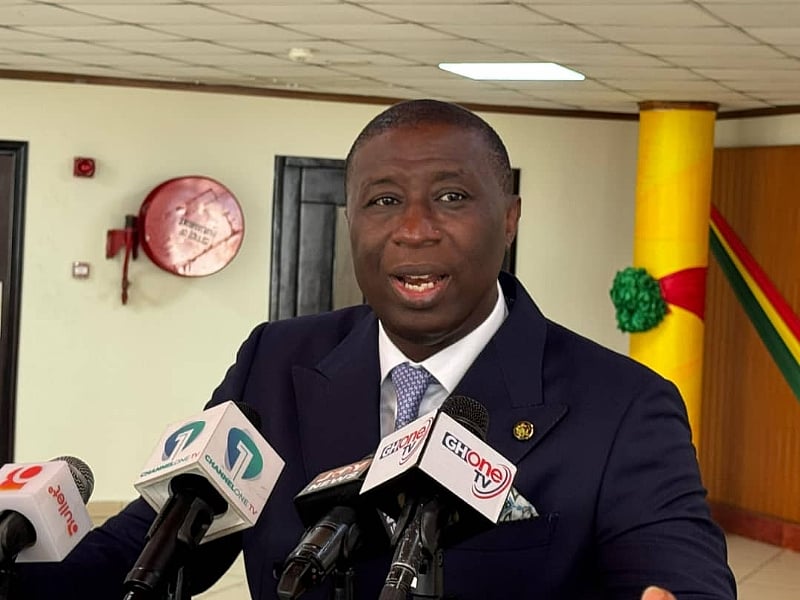The announcement of a potential reduction in passport fees by the Minister for Foreign Affairs, Mr. Samuel Okudzeto Ablakwa, has sparked a debate on the proper procedures for implementing such changes. Mr. Patrick Yaw Boamah, Member of Parliament for Okaikwei Central, has emphasized the constitutional requirement for parliamentary approval before any adjustments to fees can take effect, clarifying that the minister’s announcement does not represent a finalized policy. This highlights the crucial role of Parliament in ensuring that executive actions align with legal frameworks and established processes. The proposed reduction, from GH¢500 to GH¢350, remains a government intention pending legislative endorsement.
Mr. Boamah’s statement underscores the fundamental principle of separation of powers, which dictates that the executive branch, while responsible for formulating and proposing policies, cannot unilaterally enact changes that impact public finances. The authority to adjust fees, particularly those related to government services like passport issuance, resides with Parliament, which represents the will of the people and exercises oversight over public expenditure. This ensures transparency and accountability in government operations and prevents arbitrary decisions by individual ministers. The minister’s initial announcement, while signaling the government’s intent, lacked the necessary legislative backing to be implemented.
The legislative process requires a formal proposal from the Finance Minister, outlining the financial implications of the fee reduction and its impact on revenue projections. This proposal will be subject to parliamentary scrutiny, debate, and ultimately a vote. This process allows for a comprehensive assessment of the policy’s feasibility and potential consequences, ensuring that decisions are made in the best interest of the public. By involving Parliament, the government ensures that any changes to fees are thoroughly vetted and reflect the consensus of elected representatives.
Mr. Boamah’s clarification serves as a crucial reminder to the public not to prematurely consider the fee reduction a done deal. The minister’s announcement represents a statement of intent, not a legally binding decision. Until Parliament approves the necessary legislation, the current fee structure remains in effect. This clarification is essential to manage public expectations and prevent potential misunderstandings regarding the status of the proposed change.
The MP’s intervention also highlights the importance of accurate communication in government affairs. While announcements of policy intentions can generate public interest and signal the government’s direction, it’s crucial to clearly distinguish between proposals and implemented policies. This distinction prevents confusion and ensures that the public is accurately informed about the status of government actions. Transparency in communication builds public trust and fosters a more informed citizenry.
The situation surrounding the proposed passport fee reduction underscores the fundamental principles of democratic governance: the separation of powers, legislative oversight, and transparent communication. While the government’s intention to reduce the financial burden on citizens seeking passports is commendable, adherence to the proper legislative processes is paramount. This ensures that decisions are made with due consideration, accountability, and in accordance with the constitutional framework. Ultimately, Parliament’s role in scrutinizing and approving such changes safeguards the public interest and upholds the principles of democratic governance.


